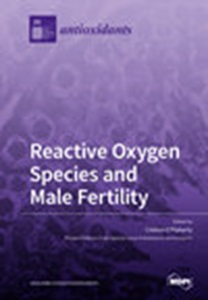姜黄素治疗的中度焦虑患者体内单核细胞集落蛋白-1 (MCP-1) 水平降低,sCD14 水平降低:一项试点研究
IF 6
2区 医学
Q1 BIOCHEMISTRY & MOLECULAR BIOLOGY
引用次数: 0
摘要
社会心理压力可能会改变皮质醇和/或影响免疫系统的正常功能。姜黄素对神经精神疾病有促进作用。我们评估了连续 15 天(1800 毫克/天)补充姜黄素是否会降低中度焦虑患者(81 人)的全身 MCP-1、sCD14 和 TNF α 水平。本研究共招募了 81 名受试者,根据他们的汉密尔顿评分分为以下两组:对照组,包括未服用姜黄素的无焦虑患者(Cont,n = 22)和焦虑组,包括中度焦虑患者(Anx,n = 22)。姜黄素治疗的患者有中度焦虑,他们连续 15 天服用姜黄素(Anx-Cur(后),n = 15,1800 毫克/天)。对 128 名患者进行了评估,根据他们在汉密尔顿量表 II 中的得分将他们分配到研究组。通过 ELISA(纳克/毫升)对唾液样本中的皮质醇水平进行量化,并通过 TBARS 检测法测量血浆中的丙二醛(MDA)水平,作为脂肪过氧化的指标。通过酶联免疫吸附法(pg/mL)量化了几种全身性促炎细胞因子(pg/mL:MCP-1、TNF alpha、IL-1 beta)和介质,包括作为单核细胞活化标志的全身性 sCD14 水平。进行了双因素双向方差分析,以评估焦虑因素(Anx)和/或姜黄素因素(Cur)对所有测试指标的贡献,包括两个因素之间的相互作用。在中度焦虑患者中观察到全身 MCP-1 水平较高,sCD14 水平升高,而姜黄素补充剂可降低这些水平。此外,姜黄素还能防止皮质醇过度表达,并降低 MDA 水平,作为这些患者的抗氧化反应。总之,姜黄素能降低焦虑症患者的全身 MCP-1 水平,从而起到抗化合作用。姜黄素能降低中度焦虑症患者的全身 MCP-1 和 sCD14 水平。本文章由计算机程序翻译,如有差异,请以英文原文为准。
Decreased Systemic Monocyte Colony Protein-1 (MCP-1) Levels and Reduced sCD14 Levels in Curcumin-Treated Patients with Moderate Anxiety: A Pilot Study
Psychosocial stress may alter cortisol and/or affect the normal functioning of the immune system. Curcuminoids can promote beneficial effects in neuropsychiatric diseases. We evaluated whether curcumin supplementation for 15 consecutive days (1800 mg/day) would decrease systemic MCP-1, sCD14, and TNF alpha levels in patients with moderate anxiety (n = 81). A total number of 81 subjects were enrolled in this study, divided into the following groups according to their Hamilton scores: a control group including patients without anxiety who were not taking curcumin (Cont, n = 22) and an anxiety group including patients with moderate anxiety (Anx, n = 22). The curcumin-treated patients experienced moderate anxiety, and they take curcumin for 15 consecutive days (Anx-Cur (after), n = 15, 1800 mg/day). An evaluation of 128 patients was conducted, which allowed for their assignment to the study groups according to their scores on Hamilton scale II. The cortisol levels were quantified in salivary samples through ELISA (ng/mL), and malonaldehyde (MDA) levels were measured in plasma via the TBARS assay as an index of lipoperoxidation. Several systemic proinflammatory cytokines (pg/mL: MCP-1, TNF alpha, IL-1 beta) and mediators were quantified through ELISA (pg/mL), including systemic sCD14 levels as a marker of monocyte activation. A two-way bifactorial ANOVA was conducted to evaluate the contributions of the anxiety factor (Anx) and/or curcumin factor (Cur) in all the tested markers, including interactions between both factors. High systemic MCP-1 and elevated sCD14 levels were observed in patients with moderate anxiety, which were reduced with curcumin supplementation. In addition, curcumin prevented cortisol overexpression and decreased MDA levels as an antioxidant response in these patients. Collectively, curcumin presented anti-chemotactic effects by reducing systemic MCP-1 levels in anxiety. Curcumin decreased systemic MCP-1 as well as sCD14 levels in patients with moderate anxiety.
求助全文
通过发布文献求助,成功后即可免费获取论文全文。
去求助
来源期刊

Antioxidants
Biochemistry, Genetics and Molecular Biology-Physiology
CiteScore
10.60
自引率
11.40%
发文量
2123
审稿时长
16.3 days
期刊介绍:
Antioxidants (ISSN 2076-3921), provides an advanced forum for studies related to the science and technology of antioxidants. It publishes research papers, reviews and communications. Our aim is to encourage scientists to publish their experimental and theoretical results in as much detail as possible. There is no restriction on the length of the papers. The full experimental details must be provided so that the results can be reproduced. Electronic files and software regarding the full details of the calculation or experimental procedure, if unable to be published in a normal way, can be deposited as supplementary electronic material.
 求助内容:
求助内容: 应助结果提醒方式:
应助结果提醒方式:


